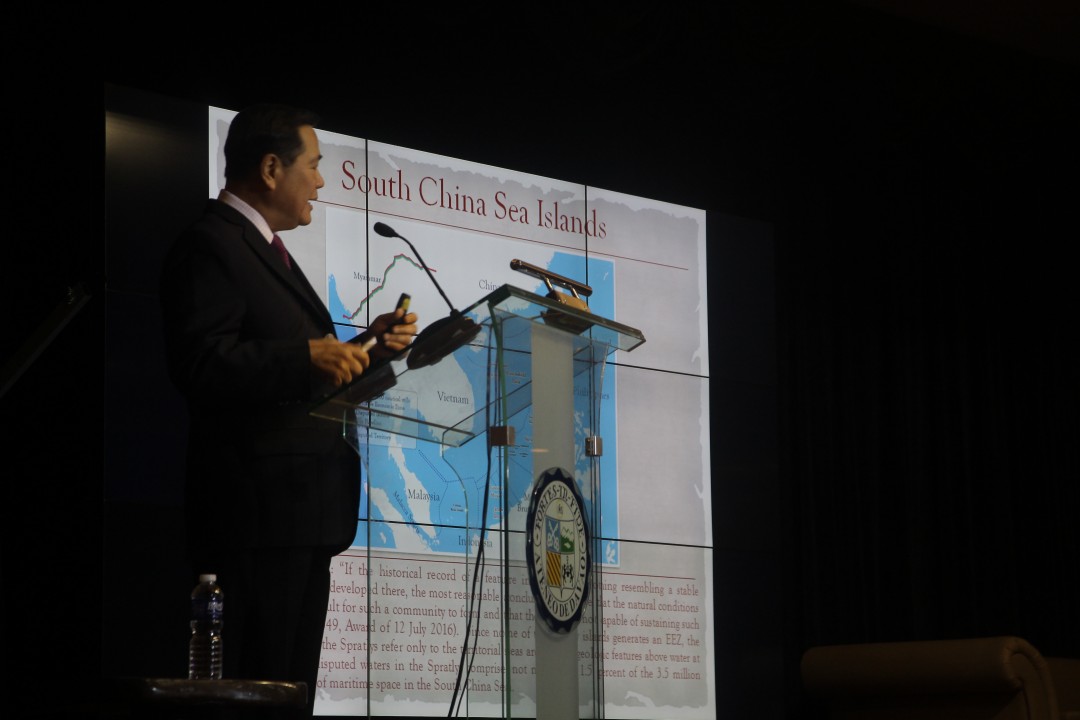Students and guests from different institutions gathered inside the Finster Auditorium last Friday afternoon as they witnessed a presentation which was entitled, “The West Philippine Sea/South China Sea Dispute: The Arbitration Decision and Its Challenges.”
Organized by the Ateneo de Davao University-College of Law, it was presented by Senior Associate Justice of the Supreme Court, Hon. Antonio T. Carpio.
Throughout the two-hour long lecture, he discussed to the audience about the background of the dispute between the Philippines and China, which included historical maps and other archives which were served as evidence as the Philippine government presented its case to the UNCLOS (United Nations Convention on the Law of the Sea) Tribunal last January 2013 and then the court issued their decision in favor of the Philippines last July 12.
After Associate Justice Carpio’s lecture on the arbitration case between the Philippines and China, there was an open forum where some members of the audience asked a number of questions to the guest speaker.
After the event, students shared their thoughts and opinions about what they learned from the lecture.
“We learned about how the South China Sea issue isn’t really about territorial sovereignty, but how UNCLOS is actually applied when it comes to the limitation territorial sea from rocks or when a certain geologic feature attains territorial sea and its own EEZ. So from the lecture, we can see that a lot of features that China has claimed actually do not have a legal basis to have territorial sea, so therefore, it has debunked a lot of presumptions of the public that China actually has habitable lands there in the area that is contested,” Francis Arapan, an international studies student said.
“So parang, it’s very important for us to know kasi it then becomes basis of our opinions that we can share in class or the people that we know and eventually we come with politically correct pronouncements once we’re asked to make them. It’s very vital and very informative,” Arapan added.
“I realized that the government of the Philippines is really doing their best to have time and focus in that kind of issue in the West Philippine Sea,” Angel Bautista, an international studies student said.

